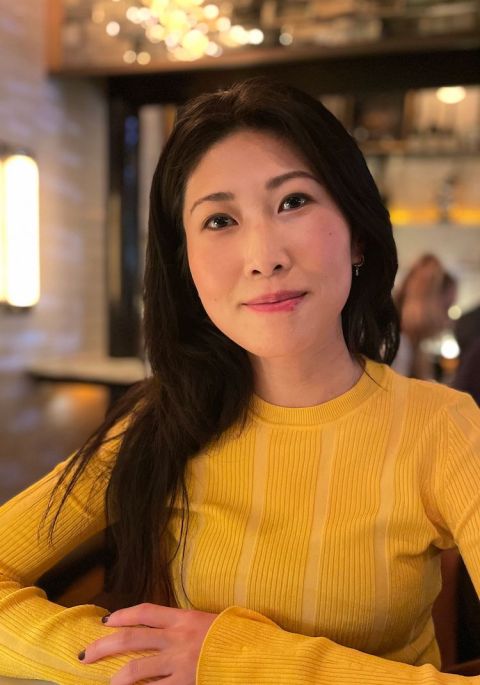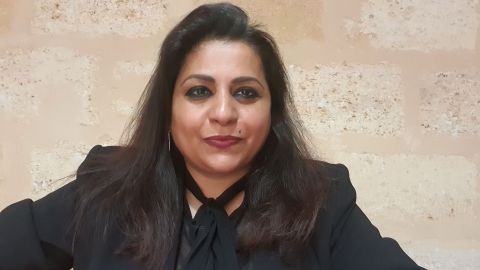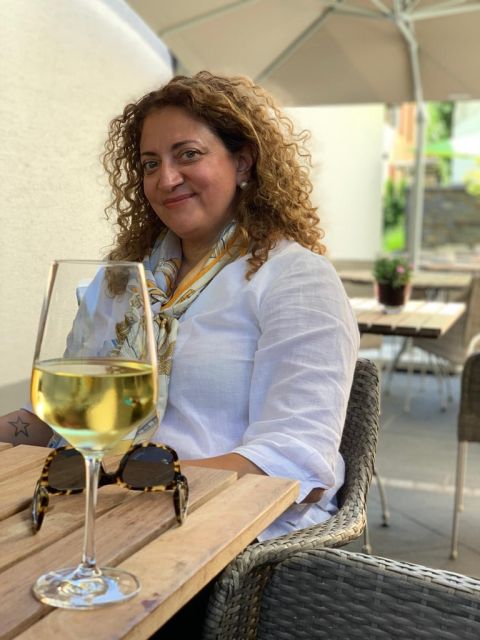There was a strange concentration of female, Bordeaux-based applicants for the 2022 Golden Vines awards. Perhaps it’s just because the city of Bordeaux is such an obvious wine centre, attracting many international students to the ISVV and KEDGE Business School. Or perhaps word of the awards spread particularly effectively there.
The first of these, Valeria Tenison, belongs to a subgroup I feel especially sorry for. She was born and brought up in Russia but left her home country in 2015 in disgust at its annexation of Crimea the year before.
Of course we all feel terribly concerned about the thousands of Ukrainians who have fled their native country in the face of Russian aggression, but at least they have the confidence of belonging to a large group that automatically inspires sympathy with millions of people around the world, and they, largely, have a common goal: to return to a peaceful Ukraine and resume their previous roles there.
Someone fleeing Russia has the great disadvantage of possibly facing discrimination by those who disapprove of the Russian invasion as well as facing a completely uncertain future, having left their friends and family behind. Where, for a start, should they base themselves? Who will employ them? Valeria is now settled in Bordeaux and has worked as a sommelier, though has found it tough to convince potential employers in France that a woman can be a somm – as well as facing prejudice because of her nationality. She was a runner-up in the French Ruinart Sommelier Challenge in 2019.
She passed her WSET Diploma (she is pictured above with her diploma from the Rust Wine Academy) and now wants to study for the Master of Wine. Currently a freelance writer for both French and Russian publications (coincidentally, her entry to our 2022 writing competition was published earlier this month), she reports, ‘this year I created a team of three female friends and we now participate in the Revue du Vin de France blind tasting tournament, so I can train my blind tasting skills regularly. Finding foreign wines is more difficult, especially from other continents. Luckily in Bordeaux we have several MW support groups where we can share costs and buy wines from abroad.’
In her application she writes, ‘me and many of my compatriots share humanist values and want to be part of the world’s community. Please, embrace us!’
Then there is Yuanjun Zhang, pictured above, a Chinese candidate highly recommended by Bordeaux specialist writer Jane Anson, who takes a special interest in matters organic and biodynamic and how they apply to Bordeaux. Having worked as a sommelier in a Michelin-starred restaurant and completed WSET studies in Ireland, she spent two years on a Master’s degree in wine at Bordeaux University. She has worked at several biodynamic estates and is keen to spread the word about such wines.
She wrote, ‘Knowing how to communicate wine is vital, especially in today’s complex wine world. I felt that I wanted to help more wineries to explore their image better in the foreign market. I worked on a freelance basis to assist some wineries in France and Spain to better communicate wine with their buyers in China. Therefore I helped to develop a network of wine tastings with their private clients and consolidated the direct relationship between the wineries and the potential buyers.’
She now runs an organic wine boutique in Bordeaux.
Another Bordeaux-based woman keen to become a Master of Wine is Amrita Singh, pictured above and recipient of a Wine Scholar Guild scholarship this year. She was in the fashion business in India, where she would like to spread the wine gospel. She has her own company, Amrita Singh Studios, which focuses on consultancy around wine education and luxury wine experiences. Amrita was raised in an Indian state where alcohol is prohibited, and this, combined with India’s general preference for spirits, meant that it wasn’t until 2004 that she was able to try wine for the first time. Having left an abusive marriage in 2002, and gradually finding herself confronted by what she called ‘so many wine snobs’, Amrita realised the importance of wine education.
In 2018 she took the plunge, leaving her previous profession and completing an MSc in Wine and Spirits Management at the KEDGE Wine School, as well and passing her WSET Level 3, which was followed by her DipWSET and the founding of her company. Amrita would like to become India’s second MW in a population of 1.38 billion. She says she would like to educate young Indians about wine and its responsible consumption, as well as to ‘positively influence passionate women to embark on a wine journey’. We awarded her a Wine Scholar Guild scholarship as she needs a bit more exposure to different wines.
The only one of these applicants not to be based in Bordeaux is Julee Resendez, pictured above, a Mexican-American broker for American wineries such as Gramercy Cellars, Hirsch Vineyards, Maison Noir, Corison, Mayacamas and Raptor Ridge. She is currently based in Amsterdam with a mission to foster the growth of women and those with less financial solvency by offering wine education through her company. She tutors some people in person but is an active mentor for a diverse range of wine students as far afield as New York, Germany and Belgium.
She told us judges she would like to qualify as an MW to honour her grandparents and their heritage. ‘My grandparents were migrant workers who through funds obtained from a GI bill were able to procure a vineyard in what is now Red Mountain Valley in Washington State. While they only grew Concord grapes and not Vitis vinifera, I spent the years of my youth learning about viticulture from my maternal grandmother. It became a financial necessity for Abuela to sell the vineyards when I was 25, and not one person within the family was able, nor wanted, to continue the work at the time. It wasn’t until later, when I moved to New York City and began to work in fine dining, that I began to realise the inheritance that been passed along.’
She says she wants ‘to continue to give people of all races, ages and identity the opportunities that I was not afforded either through education or work’.
We wish them all the very best in their wine careers.

















